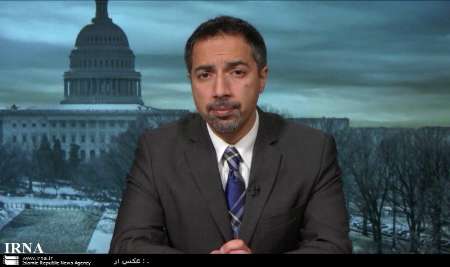
Parsi made the remarks in an exclusive interview with IRNA in New York while commenting on the ongoing visit to the Middle East of the US president.
According to dispatches, the US president is now in Saudi Arabia to address a summit of regional leaders.
On Saturday, the US signed trade deals of $ 350bn (£270bn) with Saudi Arabia. This included the largest arms deal ever made in the US history.
US Secretary of State Rex Tillerson said that the arms deal aimed at countering what he claimed is the 'malign' influence of Iran.
Trump’s arms deal with the Saudi rulers has even caused strong protest of his ally Roger Stone who said in his twitter message, 'Instead of meeting with the Saudis @realDonaldTrump should be demanding they pay for the attack on America on 9/11 which they financed.'
Commenting on Trump’s policies, Parsi told IRNA that Trump is expected to be impeached due to his incompetence for administrating the country’s domestic and foreign policies.
“On the contrary with the spirit of the landmark nuclear deal, also known as the Joint Comprehensive Plan of Action (JCPOA), Washington is now seeking to isolate Iran,” said the analyst.
He added that the Trump administration is secretly violating the JCPOA reached between Iran and G5+1(US, UK, France, Russia, China plus Germany) in 2015.
“Trump had to suspend Iran sanctions because Iran has been bound to its obligations enshrined in the JCPOA but in the meantime, he is questioning the JCPOA and frightening the bankers and investors for working with the Islamic Republic,” said the NIAC president.
He noted that Trump’s remarks against the JCPOA, limits Iran use of the JCPOA opportunities and achievements.
“Trump aims at forcing Iran to give up the JCPOA,” Parsi said.
He added that “a clear disagreement” exists within Trump’s administration about the JCPOA and the anti-Iran sanctions.
Commenting on Iran’s presidential election on May 19, Parsi hailed voters enthusiasm both inside Iran and among the Iranian nationals residing in the US.
He said that the election was indeed “a referendum about continuation of President Hassan Rouhani’s diplomacy to resolve disputes through negotiations without sacrificing national interests.”
The incumbent president was re-elected on May 19 as the new president of Iran gaining 57 percent of the total votes (over 23.4 million).
The NIAC president said massive turnout of the Iranians in the polling was determining.
9191**1394
www.irna.ir
 solhkhabar | Peace International News Agency Peace International News Agency , Peace News , International Agency News of Peace
solhkhabar | Peace International News Agency Peace International News Agency , Peace News , International Agency News of Peace